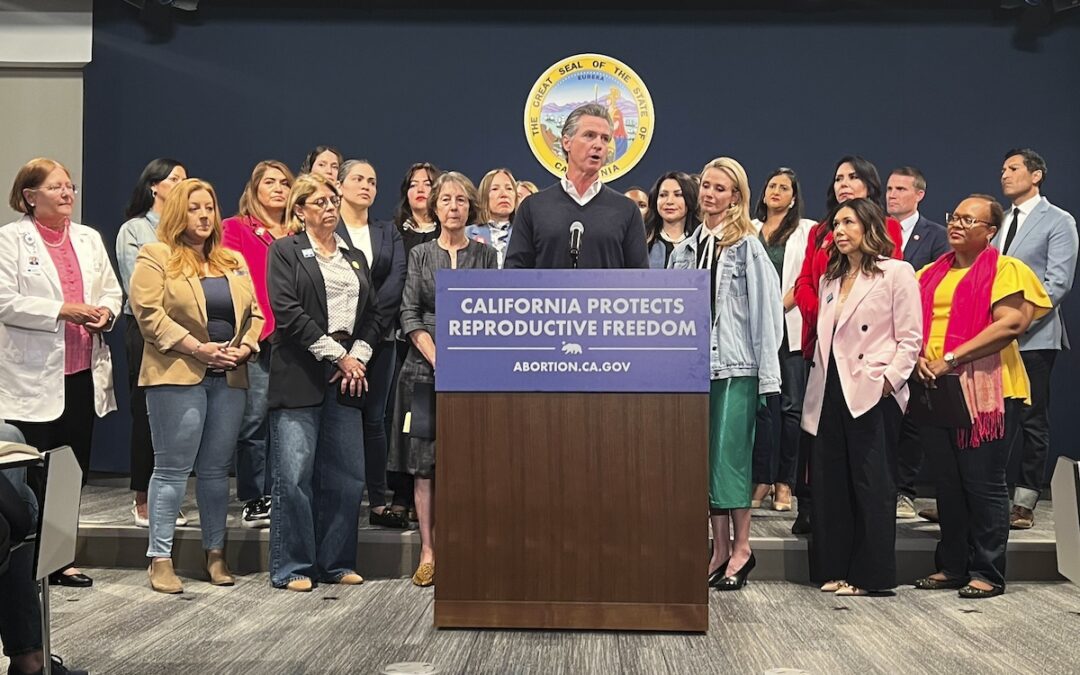
Critics of the proposed law believe regulating school sports teams based on gender infringes on transgender students’ rights and would be harmful to an already vulnerable group.
Update
HB 2706, the bill that would ban transgender athletes from playing on girls’ or women’s sports teams, moved one step forward Wednesday.
The House Rules Committee voted 5-3 to approve the bill, saying they believe it is constitutional and can move on in the legislative process.
The House Health and Human Services Committee had voted 5-4 on Feb. 13 to recommend the bill’s passage.
Original Story
During a scheduled committee hearing this Thursday, lawmakers will discuss a bill that would put gender-based restrictions on school sports teams.
HB 2706 would require any sports team sponsored by a school in the state to designate itself as either a women’s, men’s, or mixed-sex team. Additionally, if someone’s sex were disputed, the student would be required to provide a doctor’s note confirming their sex based on reproductive anatomy, natural levels of testosterone, and genetic makeup.
State Rep. Nancy Barto, R-Phoenix, who introduced the bill last month, states it “would protect female student-athletes from being forced to compete against biological males.” However, LGBTQ advocacy groups like The Human Rights Campaign (HRC) and The American Civil Liberties Union (ACLU) oppose the bill.
HRC State Director Bridget Sharp said the legislation “seeks to target, dehumanize and strip rights from transgender people.” The ACLU also argues the bill forces students to play on teams that don’t align with their gender identity, which can harm their mental health.
“Transgender youth already experience higher rates of depression and suicide,” the ACLU said in a statement to The Copper Courier. “Excluding trans students from participating in sports further jeopardizes their mental health by depriving them of the same opportunities that other students have and conveys a cruel and hateful message that they are not worthy of a full and social life.”
Parents of transgender students have also spoken out against HB 2706. One Arizona mother, Kat, told the Phoenix New Times the bill could have a negative impact on her daughter, Lily. Lily is a 13-year-old transgender girl who runs for her school’s cross country team.
“I understand there’s some complexity [to the issue of school sports],” Kat said. “It’s not a black-and-white conversation. But unfortunately, our lawmakers in this state are trying to make it one.”
Disagreement on the Science
Barto has argued it is unfair for women to have to compete against “biological males who possess inherent physiological advantages.”
“When this is allowed, it discourages female participation in athletics and, worse, it can result in women and girls being denied crucial educational and financial opportunities,” she said in a press release.
Supporters of the bill have also expressed concern over what they see as an unlevel playing field.
“Studies show biological males have “an absolute advantage” over female athletes, even long after using cross-sex hormones,” the Center for Arizona Policy stated. “The physical advantages are undeniable.”
But the National Collegiate Athletic Association’s Office of Inclusion argues that’s not necessarily always the case.
In the organization’s guide for transgender student-athletes, it says that “according to medical experts on this issue, the assumption that a transgender woman competing on a women’s team would have a competitive advantage outside the range of performance and competitive advantage or disadvantage that already exists among female athletes is not supported by evidence.”
The NCAA currently allows trans athletes to play on women’s teams, but only after they undergo a year of testosterone suppression. This requirement, the group believes, is enough time for a transgender woman’s hormone levels to match those of other female athletes.
“It is … important to know that any strength and endurance advantages a transgender woman arguably may have as a result of her prior testosterone levels dissipate after about one year of estrogen or testosterone-suppression therapy,” the NCAA’s Office of Inclusion says.
Current Policy
Current state policy surrounding school sports and gender falls somewhere in between the NCAA’s position and Barto’s bill. The Arizona Interscholastic Association, a regulatory body for high school sports, allows students to compete on whichever team they feel aligns with their gender identity.
Under this policy, students who wish to be on a gender-specific team different from the sex they were assigned at birth must get approval from the regulator. Students making an appeal to the AIA must submit letters of support from their parent or guardian, a school administrator, and a healthcare provider.
“If the Gender Identity Eligibility Committee, upon review of the above documentation, finds that the student’s request is appropriate and is not motivated by an improper purpose and there are no adverse health risks to the athlete, then a supportive recommendation shall be made,” the group’s bylaws state.
Joe Paddock, the AIA’s assistant executive director, told The Copper Courier the group would change its policy as necessary if the bill were to pass.
For students in grades lower than high school, policies are less defined. Some children change genders early enough that their choice of sports team is not as controversial. Another family who spoke with the Phoenix New Times about the bill said they are concerned with how it could impact their daughter Zoë’s future.
The family said Zoë started first by telling people she was a girl as a toddler. Zoë is now eight years old, and her family said she has already made the social transition to female. Her mother told the Phoenix New Times her daughter plans to take hormone blockers and possibly estrogen when she gets older.
“Thinking of [Zoë] in middle school playing sports with boys would be completely inappropriate,” her mother told the Phoenix New Times.
Additional Rules
HB 2706 would do more than just ban transgender athletes from female sports teams. It also establishes rules about how people and organizations can push back on its restrictions.
Those rules include barring any organization from opening an investigation into or punishing an institution for maintaining separate teams or sports for “students of the female sex.”
It also stipulates that any student who faced retaliation from a school or organization for reporting a transgender athlete on a female team could sue and potentially be awarded damages.
According to Barto, similar legislation is being considered in Idaho, New Hampshire, Washington, Tennessee, Georgia, and Missouri.
The House committee is scheduled to have a hearing on the bill Thursday.
Politics

Gov. Gavin Newsom wants to let Arizona doctors provide abortions in California
California law generally allows abortion up to the point of fetal viability, which is around 24 weeks. SACRAMENTO, Calif. (AP) — Arizona doctors...

VIDEO: Arizona Attorney General Kris Mayes indicts 18 ‘fake electors’
@coppercourier An Arizona grand jury has indicted former President Donald Trump's chief of staff, Mark Meadows, lawyer Rudy Giuliani, and 16...
Local News

Escape the heat at these indoor pools in Tucson
Arizona: it's synonymous with sunny. Mix that sun with the sprawling urban blacktops and the result is the nationally recognized heat that is...

We asked, you answered: 7 music venues in Arizona for a more intimate show
The biggest artists in the world come to Arizona to perform at places like Footprint Center, State Farm Stadium, and Desert Diamond Arena. But what...





